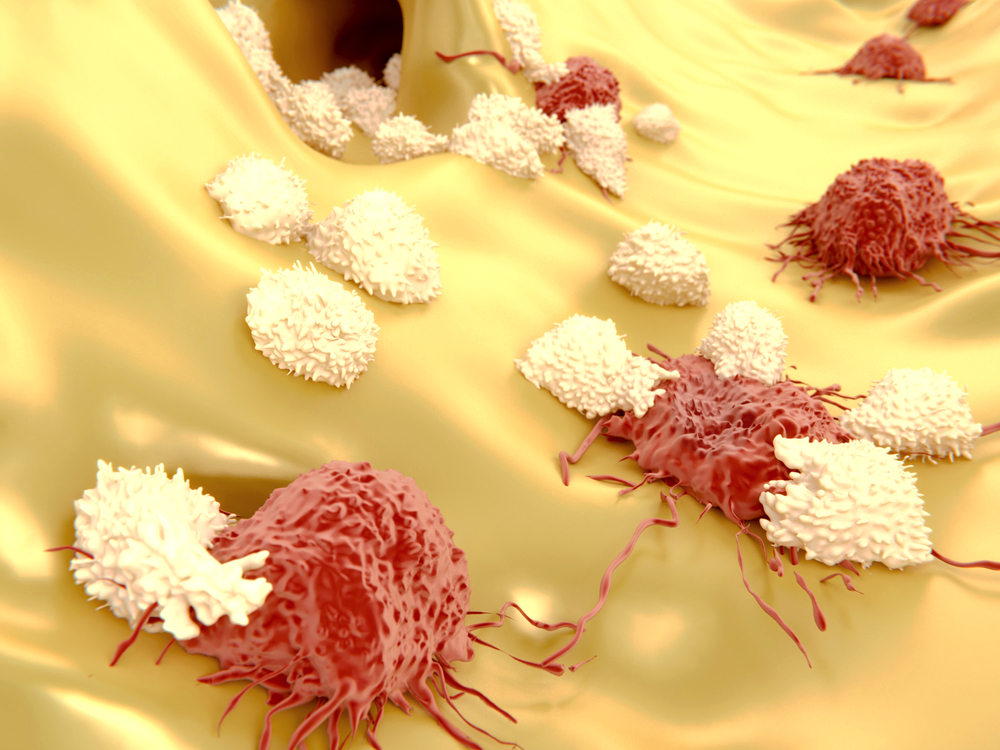Rockville, Maryland-based, clinical-stage biopharmaceutical company MacroGenics, Inc., announced this week that French pharmaceutical company Servier has given notice that it will not exercise its option to regional licensing rights for enoblituzumab (MGA271). In November 2011, MacroGenics entered into an agreement with Servier pertaining to enoblituzumab, its antibody drug for treating solid tumors. Under terms of the deal, MacroGenics retained full development and commercialization rights to enoblituzumab in the United States, Canada, Mexico, Japan, Korea, and India, while Servier paid $20 million upfront with up to $430 million to follow in exchange for European rights to enoblituzumab and to obtain an option to develop and commercialize enoblituzumab in Europe and other countries.
However, Servier was required to exercise this option within 90 days after receipt of a package delivered in July 2015 containing initial monotherapy data. It did not, and the agreement is now expired and MacroGenics retains control of worldwide development and commercialization rights to enoblituzumab. The collaboration with Servier related to development of Dual-Affinity Re-Targeting, or DART, molecules is unaffected by this decision.
MacroGenics, with its corporate focus on discovery and development of innovative monoclonal antibody-based therapeutics for treatment of cancer, autoimmune disorders, and infectious diseases, now controls worldwide rights to all programs within its B7-H3 franchise. A clinical-stage monoclonal antibody targeting B7-H3, and a member of the B7 family of immune regulators, Enoblituzumab is currently being evaluated in patients with a variety of tumor types in three clinical studies, including a monotherapy trial, as well as in combination with either ipilimumab or pembrolizumab.
 “Enoblituzumab is the cornerstone of MacroGenics’ B7-H3 franchise, a portfolio of complementary therapeutic product candidates aimed at a promising immune regulatory target,” says Scott Koenig, MD, PhD, President and CEO of MacroGenics, in a release. “As we highlighted at our recent R&D Day, we have significantly expanded our research and development efforts across B7-H3-directed therapies, including the advancement of MGD009, a B7-H3 x CD3 bispecific DART molecule, into the clinic, as well as research efforts around a B7-H3-targeted antibody drug conjugate. Servier’s decision enables us to integrate development and commercial strategies across these assets in the future.”
“Enoblituzumab is the cornerstone of MacroGenics’ B7-H3 franchise, a portfolio of complementary therapeutic product candidates aimed at a promising immune regulatory target,” says Scott Koenig, MD, PhD, President and CEO of MacroGenics, in a release. “As we highlighted at our recent R&D Day, we have significantly expanded our research and development efforts across B7-H3-directed therapies, including the advancement of MGD009, a B7-H3 x CD3 bispecific DART molecule, into the clinic, as well as research efforts around a B7-H3-targeted antibody drug conjugate. Servier’s decision enables us to integrate development and commercial strategies across these assets in the future.”
In October 2015, MacroGenics provided an overview of initial clinical data from the ongoing monotherapy trial of enoblituzumab, reporting that results to date suggest enoblituzumab is well-tolerated and tumor regression has been observed in heavily treated patients across different tumor types, including prostate and bladder cancer, and that melanoma patients progressed following treatment with one or more checkpoint inhibitor therapies. In addition, evidence of T-cell immunomodulatory function has been observed in patients treated with enoblituzumab. Data from the ongoing monotherapy trial will be presented as a late-breaking abstract session at the 2015 Society for Immunotherapy of Cancer (SITC) Annual Meeting at the Gaylord National Hotel & Convention Center in National Harbor, Maryland, on Nov. 7, 2015.
Last week MacroGenics also announced a collaboration with major global pharmaceutical company Merck (known as MSD outside the United States and Canada) to evaluate a combination of MacroGenics’ anti-HER2 product candidate, margetuximab, and Merck’s anti-PD-1 therapy, KEYTRUDA (pembrolizumab), in a Phase 1b/2 clinical trial in patients with advanced gastric cancer.
The Phase 1b/2 multicenter, open-label clinical trial will be conducted in two parts. The Phase 1b portion is designed to determine the safety and tolerability of margetuximab in combination with KEYTRUDA in patients with advanced gastric cancer, while the Phase 2 portion will evaluate the anti-tumor activity of margetuximab in combination with KEYTRUDA in patients with advanced HER2-positive gastric cancer. Trial startup activities are underway and MacroGenics expects to begin enrolling patients by the first quarter of 2016. The agreement includes a provision where the parties may extend the collaboration to include a potential Phase 3 clinical trial. The agreement is between MacroGenics and Merck, through a subsidiary. Additional details were not disclosed.
Margetuximab is an Fc-optimized monoclonal antibody that targets the human epidermal growth factor receptor 2, or HER2, which is an antigen critical for the growth of many types of tumors, including breast and gastroesophageal cancers. KEYTRUDA is a humanized monoclonal antibody that blocks the interaction between PD-1 and its ligands, PD-L1 and PD-L2.
Gastric cancer, also called stomach cancer, strikes the upper gastrointestinal tract. Most gastric cancers are adenocarcinomas, which develop from cells of the innermost lining (mucosa) of the stomach. Risk factors for gastric cancer include gender, age, ethnicity, geography, and bacterial infection with Helicobacter pylori. More than 70 percent of gastric cancer cases occur in developing countries, with half of all cases occurring in Eastern Asia (predominately China). MacroGenics notes that, worldwide, gastric cancer is the fifth most common type of cancer and the third leading cause of cancer death.
“The combination of our proprietary Fc-optimized anti-HER2 antibody, with expected enhanced immune-mediated killing properties, and the anti-PD-1 antibody KEYTRUDA, is intended to exploit potentially complementary biology,” Dr. Koenig notes. “Treatment options for patients with advanced HER2-positive gastric cancer are extremely limited. The combination of mechanisms engaged by margetuximab and KEYTRUDA could provide an important alternative for patients who do not respond to currently available regimens.”
 “Today, there is a great opportunity and need to bring forward new scientific breakthroughs for the treatment of gastric cancer,” says Dr. Eric Rubin, vice president and therapeutic area head of oncology early-stage development at Merck Research Laboratories. “Evaluating the potential of combination therapies through strategic collaborations in difficult-to-treat tumor types continues to be an important part of our immuno-oncology clinical development program for KEYTRUDA.”
“Today, there is a great opportunity and need to bring forward new scientific breakthroughs for the treatment of gastric cancer,” says Dr. Eric Rubin, vice president and therapeutic area head of oncology early-stage development at Merck Research Laboratories. “Evaluating the potential of combination therapies through strategic collaborations in difficult-to-treat tumor types continues to be an important part of our immuno-oncology clinical development program for KEYTRUDA.”
Darmstadt, Germany-based Merck KGaA, the oldest pharmaceutical and chemical company in the world — originally established in 1668 — is this year celebrating 125 years of business in the U.S. Georg Merck established the company’s U.S. presence in 1890. Today on the product research and development front, a major current and ongoing focus for Merck is the emerging field of Immuno-Oncology (iONC) — i.e.: finding ways to harness the body’s own immune system to mount an immune response against cancer. The immune system sends types of cells called T cells throughout the body to detect and fight infections and diseases — including cancers — the harnessing of which the company believes has potential to change the cancer landscape. Merck’s immuno-oncology research and early development platform, integrating research, early development and biomarker strategies, concentrates on discovering and developing the potential for new therapies intended to stimulate, activate or augment the body’s natural anti-tumor immune response.
For its part, MacroGenics is pursuing therapeutic product candidates utilizing three different and complementary mechanisms of action targeting B7-H3, an immunomodulatory molecule expressed in a broad range of tumor types. The leading program with enoblituzumab is an Fc-optimized monoclonal antibody directed against B7-H3 and currently in clinical testing against a variety of tumor targets, both as monotherapy and in combination with either ipilimumab or pembrolizumab. The second program, MGD009, also in clinical testing, is a bispecific DART molecule designed to target tumors expressing B7-H3 by recruiting and expanding T cells at the tumor site. The third program, currently in pre-clinical development, is an antibody-drug conjugate (ADC) directed against solid tumors expressing B7-H3. MacroGenics retains worldwide development and commercialization rights to all three of these programs.
As noted above, MacroGenics’ Margetuximab is an Fc-optimized monoclonal antibody that is intravenously administered order to kill tumor cells or inhibit tumor cell growth. Margetuximab targets and binds to the human epidermal growth factor receptor 2, or HER2 protein on cancer cells, an antigen critical for growth of many types of tumors, including breast, gastroesophageal, and other HER2-positive cancers. MacroGenetics is developing margetuximab as an improved, more potent, anti-HER2 treatment.
MacroGenics notes that an important mechanism of anti-HER2 monoclonal antibody action is mediation of Antibody Dependent Cellular Cytotoxicity (ADCC), in which the anti-HER2 antibody binds to tumor cells and then recruits immune cells, such as macrophages, through their FcRs. FcR-mediated mechanisms play a critical part in the effectiveness of targeted tumor antibodies, including anti-HER2 antibodies. Therefore, MacroGenics has optimized the important Fc region of margetuximab, improving the drug’s cell-killing properties compared with current anti-HER2 therapies (including trastuzumab). Specifically, it has increased binding to activating receptors and decreased binding to the inhibitory receptor on immune effector cells. As a result, MacroGenics believes margetuximab has potential for effectiveness in a broader population than are currently being treated with trastuzumab and may overcome resistance in populations who no longer respond to trastuzumab.
Merck’s KEYTRUDA is a humanized monoclonal antibody that blocks the interaction between PD-1 and its ligands, PD-L1 and PD-L2. One way the immune system controls activity of T cells is through the PD-1 pathway. However, some cancer cells hide from T-cell attack by taking control of the PD-1 pathway. KEYTRUDA, by targeting the PD-1/PD-L1 pathway, helps the immune system do what it was meant to do: detect and fight cancer cells. However, KEYTRUDA can also cause the immune system to attack normal organs and tissues in many areas of the body and can affect the way they work. These problems can sometimes become serious or life-threatening. KEYTRUDA is approved for use with a companion diagnostic, the PD-L1 IHC 22C3 pharmDx test, the first test designed to detect PD-L1 expression in non-small cell lung tumors.
In 2014, KEYTRUDA was approved to treat patients with advanced melanoma following treatment with ipilimumab, a type of immunotherapy.
For more information, visit:
http://www.macrogenics.com
and
http://www.merck.com/
Sources:
MacroGenics, Inc.
Merck KGaA


